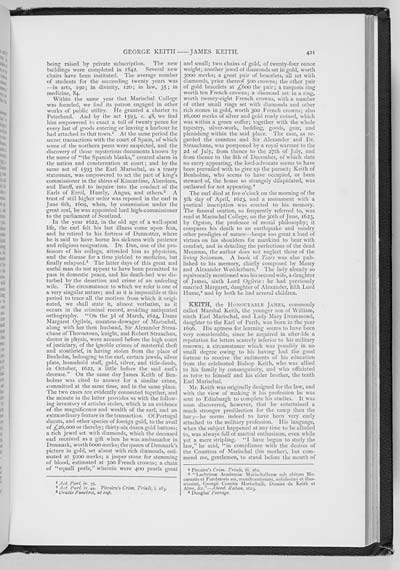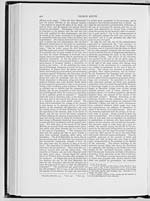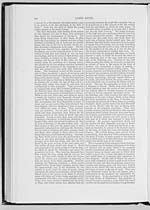421
being raised by private subscription. The new
buildings were completed in 1842. Several new
chairs have been instituted. The average number
of students for the succeeding twenty years was
�in arts, 190; in divinity, 120; in law, 35; in
medicine, 84.
Within the same year that Marischal College
was founded, we find its patron engaged in other
works of public utility. He granted a charter to
Peterhead. And by the act 1593, c. 48, we find
him empowered to exact a toll of twenty pence for
every last of goods entering or leaving a harbour he
had attached to that town.1 At the same period the
secret transactions with the court of Spain, of which
some of the northern peers were suspected, and the
discovery of those mysterious documents known by
the name of "the Spanish blanks," created alarm in
the nation and consternation at court; and by the
same act of 1593 the Earl Marischal, as a trusty
statesman, was empowered to act the part of king's
commissioner in the shires of Kincardine, Aberdeen,
and Banff, and to inquire into the conduct of the
Earls of Errol, Huntly, Angus, and others.2 A
trust of still higher order was reposed in the earl in
June 6th, 1609, when, by commission under the
great seal, he was appointed lord high-commissioner
to the parliament of Scotland.
In the year 1622, in the old age of a well-spent
life, the earl felt his last illness come upon him,
and he retired to his fortress of Dunnotter, where
he is said to have borne his sickness with patience
and religious resignation. Dr. Dun, one of the pro-
fessors of his college, attended him as physician,
and the disease for a time yielded to medicine, but
finally relapsed.3 The latter days of this great and
useful man do not appear to have been permitted to
pass in domestic peace, and his death-bed was dis-
turbed by the desertion and crime of an unfeeling
wife. The circumstance to which we refer is one of
a very singular nature; and as it is impossible at this
period to trace all the motives from which it origi-
nated, we shall state it, almost verbatim, as it
occurs in the criminal record, avoiding antiquated
orthography. "On the 3d of March, 1624, Dame
Margaret Ogilvie, countess-dowager of Marischal,
along with her then husband, Sir Alexander Strau-
chane of Thornetoun, knight, and Robert Strauchan,
doctor in physic, were accused before the high court
of justiciary, of the ignoble crimes of masterful theft
and stouthrief, in having stolen from the place of
Benholm, belonging to the earl, certain jewels, silver
plate, household stuff, gold, silver, and title-deeds,
in October, 1622, a little before the said earl's
decease." On the same day James Keith of Ben-
holme was cited to answer for a similar crime,
committed at the same time, and in the same place.
The two cases are evidently connected together, and
the minute in the latter provides us with the follow-
ing inventory of articles stolen, which is an evidence
of the magnificence and wealth of the earl, and an
extraordinary feature in the transaction. Of Portugal
ducats, and other species of foreign gold, to the avail
of �26,000 or thereby; thirty-six dozen gold buttons;
a rich jewel set with diamonds, which the deceased
earl received as a gift when he was ambassador in
Denmark, worth 6000 merks; the queen of Denmark's
picture in gold, set about with rich diamonds, esti-
mated at 5000 merks; a jasper stone for stemming
of blood, estimated at 500 French crowns; a chain
of "equall perle," wherein were 400 pearls great
1 Act. Parl. iv. 35.
2 Act. Parl. iv. 44. Pitcairn's Crim. Trials, i. 283.
3 Oratio Funebris, ut sup.
and small; two chains of gold, of twenty-four ounce
weight; another jewel of diamonds set in gold, worth
3000 merks; a great pair of bracelets, all set with
diamonds, price thereof 500 crowns; the other pair
of gold bracelets at �600 the pair ; a turquois ring
worth ten French crowns; a diamond set in a ring,
worth twenty-eight French crowns, with a number
of other small rings set with diamonds and other
rich stones in gold, worth 300 French crowns; also
16,000 merks of silver and gold ready coined, which
was within a green coffer; together with the whole
tapestry, silver-work, bedding, goods, gear, and
plenishing within the said place. The case, as re-
garded the countess and Sir Alexander and Dr.
Strauchane, was postponed by a royal warrant to the
2d of July, from thence to the 27th of July, and
from thence to the 8th of December, of which date
no entry appearing, the lord-advocate seems to have
been prevailed with to give up the pursuit; Keith of
Benholme, who seems to have occupied, or been
steward of, the house so strangely dilapidated, was
outlawed for not appearing.4
The earl died at five o'clock on the morning of the
5th day of April, 1623, and a monument with a
poetical inscription was erected to his memory.
The funeral oration, so frequently referred to, was
read at Marischal College, on the 3Oth of June, 1623,
by Ogston, the professor of moral philosophy; it
compares his death to an earthquake and sundry
other prodigies of nature�heaps too great a load of
virtues on his shoulders for mankind to bear with
comfort, and in detailing the perfections of the dead
Mec�nas, the author does not neglect those of the
living Solomon. A book of Tears was also pub-
lished to his memory, chiefly composed by Massy
and Alexander Wedderburn.5 The lady already so
equivocally mentioned was his second wife, a daughter
of James, sixth Lord Ogilvie: he had previously
married Margaret, daughter of Alexander, fifth Lord
Hume,6 and by both he had several children.
KEITH, the HONOURABLE JAMES, commonly
called Marshal Keith, the younger son of William,
ninth Earl Marischal, and Lady Mary Drummond,
daughter to the Earl of Perth, was born in the year
1696. His aptness for learning seems to have been
very considerable, since he acquired in after-life a
reputation for letters scarcely inferior to his military
renown; a circumstance which was possibly in no
small degree owing to his having had the good
fortune to receive the rudiments of his education
from the celebrated Bishop Keith, who was allied
to his family by consanguinity, and who officiated
as tutor to himself and his elder brother, the tenth
Earl Marischal.
Mr. Keith was originally designed for the law, and
with the view of making it his profession he was
sent to Edinburgh to complete his studies. It was
soon discovered, however, that he entertained a
much stronger predilection for the camp than the
bar ;�he seems indeed to have been very early
attached to the military profession. His language,
when the subject happened at any time to be alluded
to, was always full of martial enthusiasm, even while
yet a mere stripling. "I have begun to study the
law," he said, "in compliance with the desires of
the Countess of Marischal (his mother), but com-
mend me, gentlemen, to stand before the mouth of
4 Pitcairn's Crim. Trials, iii. 562.
5 "Lachrim� Academi� Marischallan� sub obitum Me-
c�natis et Fundatoris sui, munificentissimi, nobilissimi et illus-
trissimi, Georgii Comitis Marischalli, Domini de Keith et
Altre, &c."�A berd. Raban, 1623.
6 Douglas' Peerage.

![]() Universal Viewer |
Universal Viewer | ![]() Mirador |
Large image | Transcription
Mirador |
Large image | Transcription
![]()

